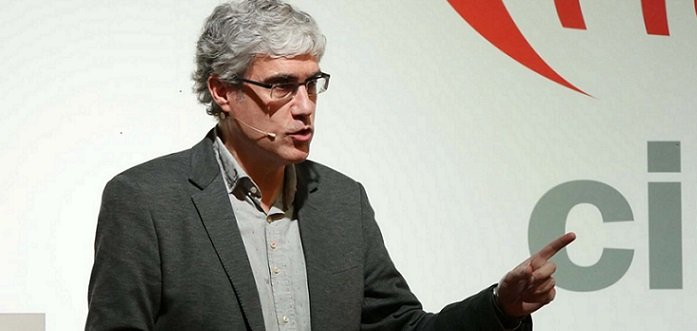"Cinema can help redistribute and improve the touristic experience"
Barcelona maintains a love story with cinema that makes the city familiar to spectators all over the world, which have through the movies an incentive to come to see it.
11-04-2019 | Interviews
Eugeni Osácar
An expert in cinema tourism and professor at the CETT-UB
The binomial tourism and cinema, known as cinema tourism, is a "strategic alliance" that can contribute to get new kinds of public, to create a competitive and different offer and, from the point of view of sustainability, to help redistribute visitors and improve the tourism experience.
This is what Eugeni Osácar, a professor in the University for Tourism, Hostelery and Gastronomy CETT-UB and a great expert in this field, believes. Cinema tourism has a big component of motivation and "for most of its followers it is reasonable to think they can travel in the out season". A significant part of those tourists want to know or revisit the exact places where the film or show has been shot. "As long as a destination is able to structure a cinema based offer far from the areas of tourism intensity, it will be able to obtain a certain redistribution of tourism and so, contribute to the improvement of sustainability at this destination", he points out.
Osácar has just published a new expanded edition of 'Barcelona: a city of movies', a review of the cinematographic history of the city. "We are living in a time where personal and collective images have a very important power", he says. Audiovisual productions "can help a lot the destinations to create and reinforce their imaginary". Movies such as Vicky Cristina Barcelona by Woody Allen, or Todo Sobre Mi Madre, by Pedro Almodóvar have contributed to positioning our city.
CETT-UB is a leader in tourism training, both in Catalonia and the rest of Spain. From the CETT "we are convinced that tourism training at its different levels (vocational training, bachelors, masters, continuous training) is fundamental for the country's economic, social and cultural development". Since the Degree in Tourism was implemented (2009) "we have been pioneers in creating a course on cinema tourism".








